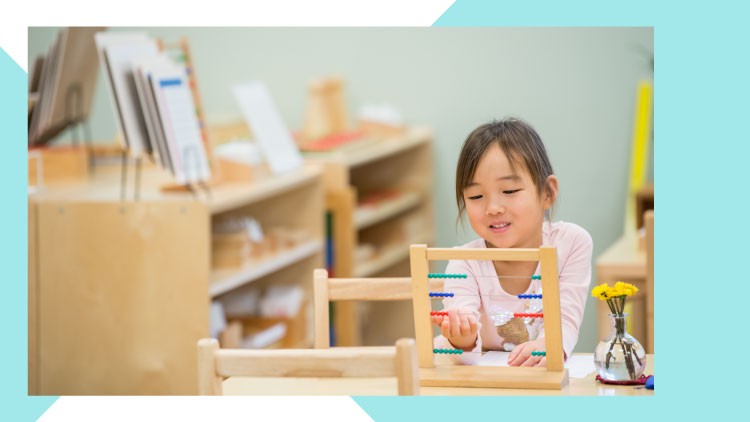
An Introduction to Raising Capable, Independent Children
What you will learn
To recognize the elements of the Montessori educational approach from birth to 18 years of age
To understand how a Montessori classroom functions and its four key developmental goals
To learn where the Montessori approach came from and why it works today
To learn how to prepare a Montessori environment
To enact the Montessori approach to facilitate child-led learning and encourage concentration and self-confidence
To understand Montessori concepts such as Planes of Development, Sensitive Periods, and the Absorbent Mind
To recognize why factual observation is crucial to the Montessori approach
Description
Are you curious how Montessori education works? Do you want to explore new strategies to support the young people in your life? Whatever your motivation for being here, you are in the right place. This free course is an introduction to raising capable, independent children in today’s world.
COURSE GOALS
Through short, engaging videos, you’ll discover the basic building blocks of the Montessori educational approach from birth to 18 years of age.
- You’ll experience formative moments in the lives of children and adolescents in Montessori classrooms and learn the principles that shape these dynamic learning environments.
- Block by block, you’ll build your own understanding of how children develop, and what you can do to support this process through childhood into adolescence.
COURSE OUTLINE
This course is divided into 5 sections. Within each section, you will find lectures and resources that bring the Montessori approach to life.
Section 1: Welcome to the Course!
- We’ll introduce ourselves and orient you to the course format and resources.
Section 2: What Happens in a Montessori Classroom?
- You’ll observe infants, children, and adolescents in Montessori environments and discover four main goals they are focused on accomplishing.
- We’ll discuss ways adults can remove obstacles to better support these goals.
- You’re invited to learn about Montessori history through the inspiring story of the doctor who discovered the approach.
Section 3: The Child, the Environment, and the Adult
- You’ll explore how the harmonious relationship between the child, environment, and adult is at the center of the Montessori approach.
- We’ll dive into the science and theory of human development, from birth to adulthood, focusing on foundational Montessori ideas like the Four Planes of Development, Absorbent Mind, and Sensitive Periods.
- You’ll be introduced to the concepts of the prepared environment and prepared adult, and see how together with the child, they form a unit that deeply impacts children’s development.
Section 4: The Montessori Equation
- We’ll discuss practical steps adults can take to support growth and learning within a prepared environment, and what those steps add up to for children.
- You’ll see how the information covered in the previous sections of the course relate to the Montessori Equation, as all the pieces of the Montessori approach come together.
Section 5: Why Montessori Matters
- We’ll conclude the course by zooming out to recognize the wider impact of our work with children.
- Your presence and actions influence the children in your life, which directly shapes their future, and the future of our world.
COURSE RESOURCES
You will find documents, links, and reflection questions to deepen your learning experience.
The experts at the Prepared Montessorian Institute have created colorful infographics that can be downloaded and shared. These include:
- The Four Planes of Development Infographic
- Montessori’s Sensitive Periods of Early Childhood Infographic
- The Montessori Trifecta Infographic
- The Montessori Equation Infographic
- Montessori Materials and Activity Highlights
YOUR COURSE INSTRUCTOR
This course is led by life-long learner, Emily Daggett, a Montessori Mentor at Prepared Montessorian Institute. Emily grew up in the Montessori community and attended Montessori schools through age 14. As an adult, Emily returned to her roots to study Montessori pedagogy and child development from birth through age twelve.
She brings her lived experience as a Montessori child, along with over a decade dedicated to the Montessori movement in adulthood. She’s worked in Montessori communities as a guide, an administrator, and volunteer.
More recently, Emily has supported Montessori guides, parents, and in-home educators throughout the pandemic, bringing novel applications of the time-tested Montessori approach to children and families today. She’s taught thousands of learners online already and is grateful for the opportunity to share this introduction to Montessori education with you.
WAYS TO TAKE THE COURSE
The lectures in How Montessori Education Works are designed to be viewed in order, totaling 1 hour and 45 minutes.
If you only have a short time to dedicate, there are 4 recommended paths through the content in 20, 30, or 45 minutes.
PATH 1: “How Montessori Education Works” in 20 Minutes
- Section 2: What Happens in a Montessori Classroom?
- Lectures 5 and 7
- Section 3: The Child, the Environment, and the Adult
- Lectures 13 and 21
- Section 4: The Montessori Equation
- Lectures 22, 27, and 28
PATH 2: “Putting Montessori into Practice” in 30 minutes
- Section 4: The Montessori Equation
- Lectures 22-28 (all lectures in Section 4)
PATH 3: “How Montessori Education Works” in 45 Minutes
- Section 2: What Happens in a Montessori Classroom?
- Lectures 5, 6, 7, and 11
- Section 3: The Child, the Environment, and the Adult
- Lectures 13, 14, 15, and 21
- Section 4: The Montessori Equation
- Lectures 22, 23, and 26-28
- Section 5: Why Montessori Matters
- Lecture 29
PATH 4: “Montessori History and Child Development” in 45 minutes
- Section 2: What Happens in a Montessori Classroom?
- Lecture 12
- Section 3: The Child, the Environment, and the Adult
- Lectures 13-21 (all lectures in Section 3)
Content